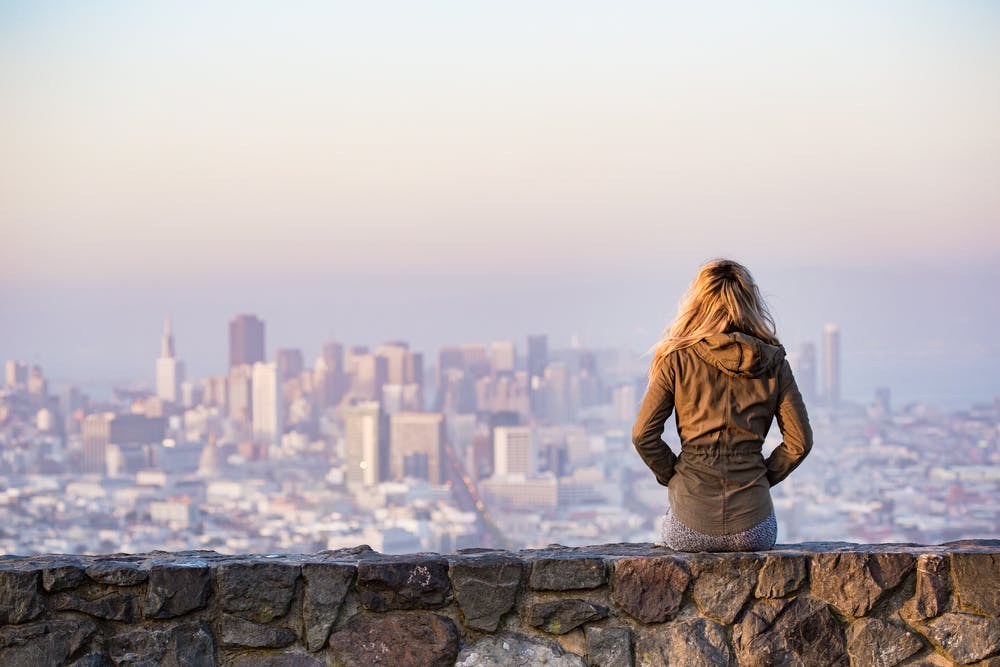As we head into a third year of this collective experience of uncertainty, I have been thinking about the parallels between what many are feeling as this pandemic drags on and what so many experience acutely or chronically in their individual lives. The continued uncertainty that is felt uniquely when the unknowns of the future overwhelmingly have felt negative, rather than positive, might best be described as existential dread.
Existential dread happens when the uncertainties of life become too much to bear and we are left feeling helpless and hopeless at its worst. One might question the meaning of life or just the merit of their efforts. It may manifest as anxiety or depression and leave us managing through avoidance habits, self isolation, rumination, or even thoughts of suicide. Existential dread might be triggered on a large scale by a pandemic, political unrest, systemic racism and inequality and other national or global traumas. On an individual scale, it may be triggered by experiencing multiple traumas over a short period of time or a seemingly unending stream of stressors from an early age. It could be facing a terminal illness for yourself or a loved one, a tragic accident, a job loss, the end of a relationship, or interpersonal conflict that feels unresolvable. The current stressor may even seem small in comparison to the dread it brings but when we are already feeling overtaxed, it becomes more than we can bear.
How do we face the uncertainties of the future with our eyes open while not being overcome by the dread? There is no easy answer to this question. It is something I wrestle with and a frequent topic with my friends, colleagues, and clients. I am sharing with you today some things that I have come to understand for myself. I humbly submit that there may be things that you completely disagree with and I welcome you to share that with me as we seek to understand how to move forward. My hope is that what I share will simply provide something for others to ponder on, something that perhaps starts to shed light into those spaces that feel so dark.
At the very core of this existential dread is not the question, “will this happen?”, but “will it be more than I can handle?”. It is also often a question of whether we can hope in the tragedies ending and if there will be joy and peace again. The reality is that we cannot know what the future holds, but we can choose how we will respond. We can take control of the narrative. Will we allow ourselves to be defined by the tragedies or will we decide to be defined by our resilience? Can we begin to have faith in knowing that the traumatic and stressful events are not the end of our stories? Can we believe that even in death, hope can continue to spread as we see in the legacy that is carried on when those who have inspired us pass? If you find it challenging to maintain hope, I encourage you to explore with a counselor or a faith leader, if applicable, your worldview.
Lest you imagine I’m asking you to put a blindfold on and listen to motivational speeches full of toxic positivity like, “if you can dream it, you can do it”, and other harmful ideas like, “I am the master of my destiny”, let’s dig into this a bit deeper. Life is hard sometimes, and for some, that description is akin to describing a severed leg as a little cut. Toxic positivity can leave those who are suffering feeling completely unseen, dismissed, and shamed. There is a place for practicing positive thoughts like gratitude but not without allowing an acknowledgement of the pain that is very real. As you face the uncertainty of the future, know that it is OK to feel afraid, discouraged, and even hopeless at times. What we need to find, I believe, is a place of balance, also known as the practice of mindfulness. It is acknowledging the realness of the pain as well as the good and beautiful that coexists. I don’t mean there is a purpose for your pain — another positivity quote that makes me cringe. But I do believe that there are moments of beauty even in the darkest times. I believe this mindful approach allows us to be proactive and present, while not being pulled under by despair.
Lastly, as we face the uncertainty of the future, I believe we cannot maintain hope if we try to do it alone. We are relational people. We need to know that we are not alone in what we struggle with and that we will not be abandoned when things get too hard. If you are struggling to maintain hope, find a community of people where you can be vulnerable. If you are not sure where to start, ask someone whom you admire for recommendations. If this seems daunting, explore your feelings about it with a therapist. Often it is our fears of being hurt that keep us from reaching out. Chances are, as you seek authentic connections, you will be hurt, but you will also find safe, healing communities.
Life is full of uncertainty, that is one thing we can know for sure. There will be pain and there will be joy. My hope for you is that you hold tenaciously to your hope and that you surround yourself with those who remind you that you are not alone.
Hannah Lindsay, LCSW, provides individual and family therapy in our Sterling, VA office and virtually to those located in the State of Virginia. Call or email today to set up your first appointment or a complimentary consultation with Hannah.






